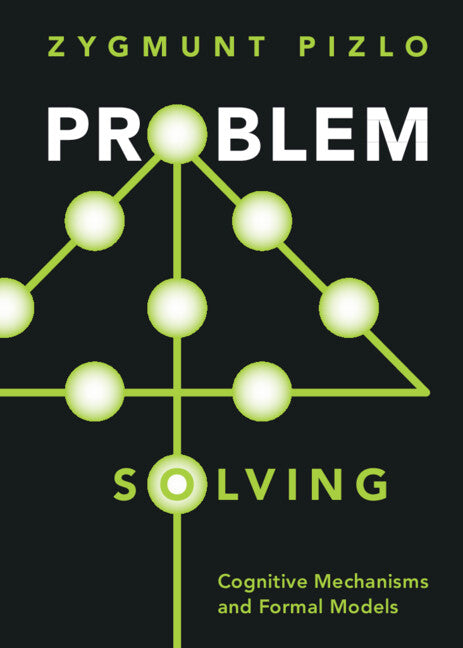Freshly Printed - allow 6 days lead
Couldn't load pickup availability
Problem Solving
Cognitive Mechanisms and Formal Models
The first textbook on how problem-solving really works, explaining how abstract thinking leads to physical action directed towards a goal.
Zygmunt Pizlo (Author)
9781009205566, Cambridge University Press
Hardback, published 7 July 2022
250 pages
26.2 x 18.5 x 1.8 cm, 0.57 kg
Intelligent mental representations of physical, cognitive and social environments allow humans to navigate enormous search spaces, whose sizes vastly exceed the number of neurons in the human brain. This allows us to solve a wide range of problems, such as the Traveling Salesperson Problem, insight problems, as well as mathematics and physics problems. As an area of research, problem solving has steadily grown over time. Researchers in Artificial Intelligence have been formulating theories of problem solving for the last 70 years. Psychologists, on the other hand, have focused their efforts on documenting the observed behavior of subjects solving problems. This book represents the first effort to merge the behavioral results of human subjects with formal models of the causative cognitive mechanisms. The first coursebook to deal exclusively with the topic, it provides a main text for elective courses and a supplementary text for courses such as cognitive psychology and neuroscience.
Preface
1. Problem solving – definition of the main concepts
2. Animal problem solving: innovative use of tools
3. Modern research on the human's ability to solve problems that have large spaces
4. The exponential pyramid representation that compensates for the exponentially-large problem spaces
5. Heuristic function, distance and direction in solving problems
6. Insight and creative thinking
7. Inference in perception. Perceptual representation: a rejoinder to insight
8. Cognitive inference. Mental representations
9. Theory of Mind (ToM)
10. Solving problems in physics and mathematics
11. Summary and conclusions.
Subject Areas: Cognition & cognitive psychology [JMR], Cognitivism, cognitive theory [JMAQ]


